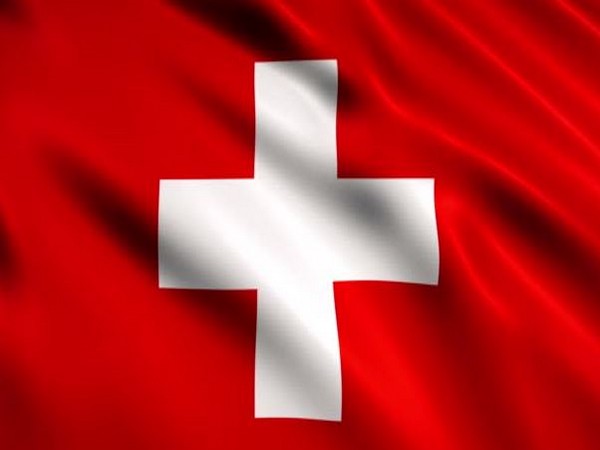
Fully vaccinated persons from India can enter Switzerland without COVID test, quarantine, announces Swiss government

Zurich [Switzerland], June 29 (ANI): As Switzerland relaxed COVID-related restrictions from June 26, the government’s Federal Council of Public Health has informed that persons from countries with a variant of concern like India, who have been vaccinated or who have recovered from COVID-19, will be permitted entry without the need for a negative test or quarantine.
However, for those people who are arriving from a country with a variant of the virus of concern, they will be permitted entry as long as it is certain that the vaccination offers good protection. Those who have neither been vaccinated nor have recovered must present a negative PCR test or rapid antigen test and go into quarantine on entry, said the Federal Council.
This means that persons who have been vaccinated or who have recovered do not have to produce a negative test even when travelling from countries where the Delta variant is widespread (such as India or the United Kingdom) and do not have to quarantine on entry.
“The vaccines used in Switzerland are only slightly less effective against the Delta variant and thus still offer a very high level of protection,” said the Council.
The Swiss government has also announced that COVID certificates will be permitted as supporting documents in case of international travel and areas of application in the country.
In an FAQ, Switzerland’s Federal Council of Public Health said that: “From 1 July, the federal government works on the assumption that anyone who wants a COVID certificate will have received one. From this date, only COVID certificates will be permitted as supporting documents for the areas of application in Switzerland. This applies to cases set out in the COVID-19 Special Situation Ordinance, so e.g. events, cinemas, theatres and restaurants if they wish to restrict entry to those who are vaccinated, have tested negative or recovered.”
“In international travel and in the context of contact quarantine, alternative supporting documents are still possible,” it added. Additionally, children can also be issued with a COVID certificate of testing or recovery and the certificates of all family members can be stored in a single app, according to the Council.
A COVID certificate allows people to resume certain activities and serves as evidence that an individual is either protected against the virus or it is highly unlikely that he/she is infectious.
According to the Federal Council’s line of action, everyday settings, such as public transport, retail, workplaces and training facilities, where the use of the COVID certificate is not planned in the ordinance.
Settings, where the certificate will be a condition, include international passenger transport, major events and nightclubs of dance events.
On June 23, the Federal Council had decided to relax the requirements for entering Switzerland from Saturday after a decrease in fresh infections. Persons entering from the Schengen area will no longer be required to quarantine. It is now once again possible for third-country citizens travelling from countries such as the USA, Albania or Serbia to enter Switzerland, informed the Council.
Meanwhile, in Switzerland, the requirements to work from home and to wear masks outdoors will be lifted and restaurants will again be allowed to seat as many people together as they wish. Large-scale events with COVID certificates will be allowed to take place without restrictions on capacity or the number of people present.
“Case numbers and hospital admissions due to COVID-19 are continuing to fall sharply. In addition, around half of the adult population will be fully vaccinated by the end of the month. However, caution is still warranted,” said the Federal Council.
Shops, leisure and sporting facilities will be able to make full use of their available capacity. Water parks may also reopen. However, a restriction of two-thirds’ capacity will apply to events and venues where no COVID certificate is required.
The rule for events without a COVID certificate requirement include that up to 1,000 people may attend an event indoors or outdoors and up to two-thirds of the venue’s capacity may be used.
The limits regarding private events continue to apply, that is, no more than 30 people indoors and 50 people outdoors. (ANI)

















POST COMMENTS (0)